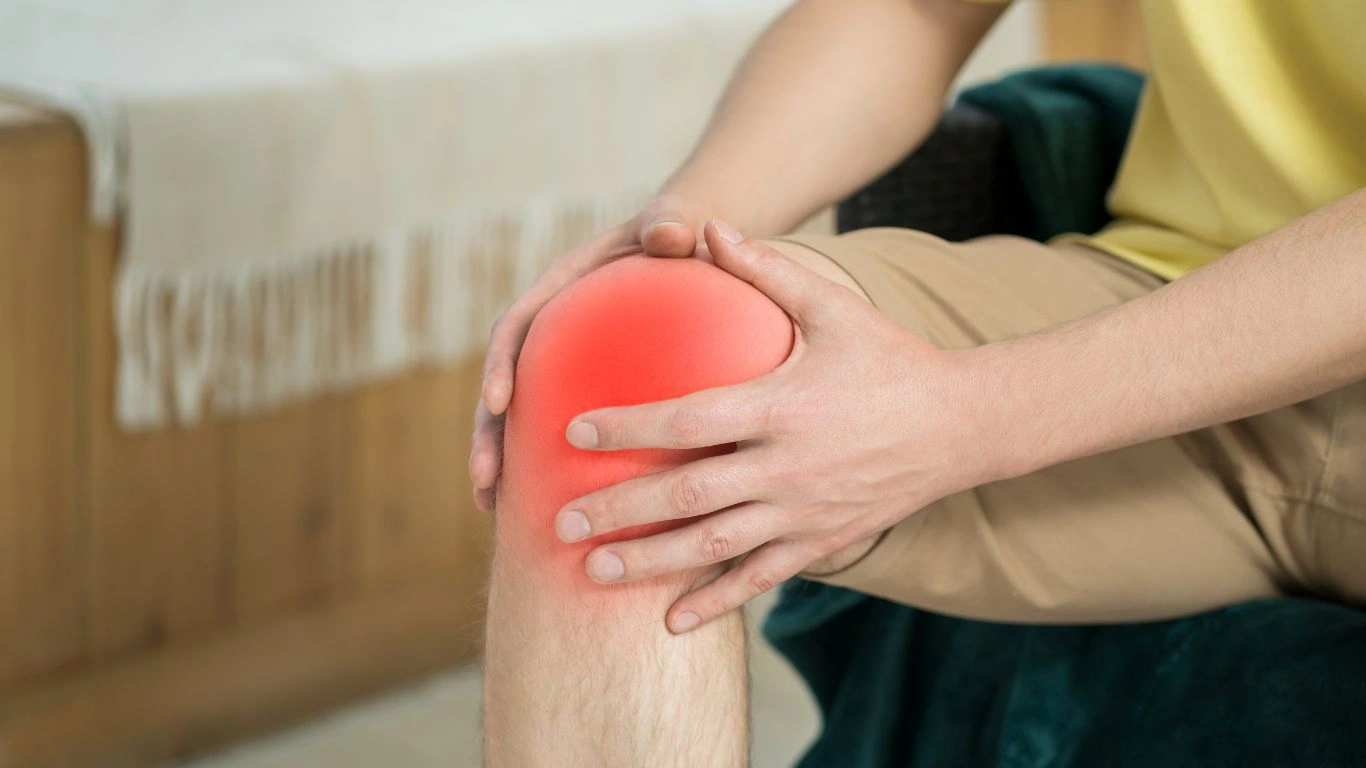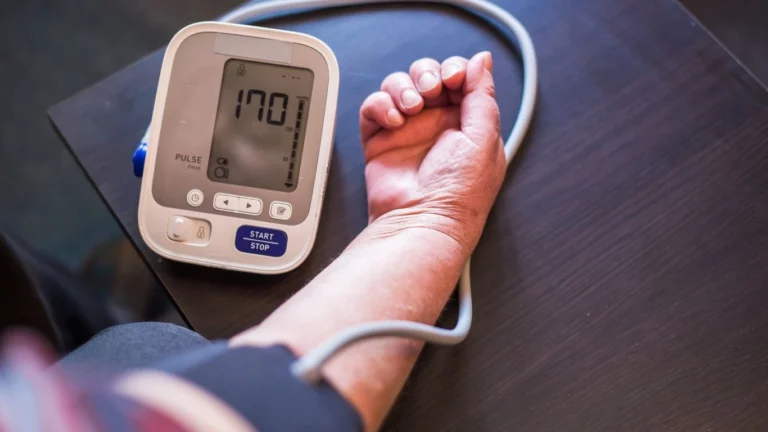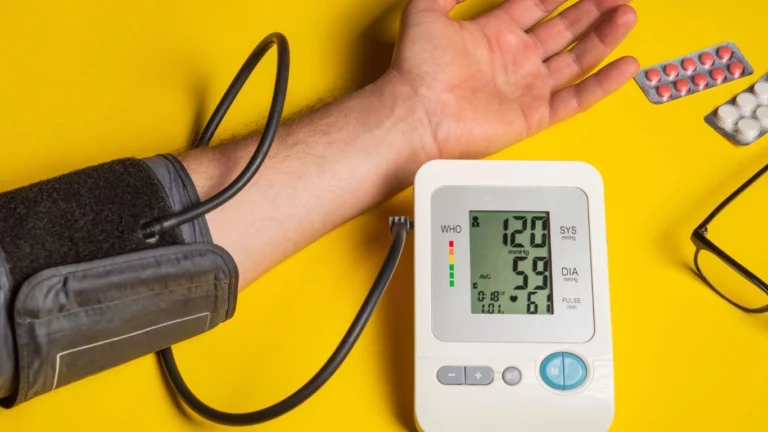Rheumatoid Arthritis & Calcium: Must-Know Bone Health Facts
Rheumatoid arthritis is no joke. If you’ve ever woken up with stiff, swollen joints that make simple tasks feel impossible, you know exactly what I’m talking about. As a Rheumatology Nurse Practitioner, I’ve seen firsthand how this autoimmune disease can take over someone’s life. But here’s something that often gets overlooked—the importance of calcium intake. Most people associate calcium with bone health (which is true!), but it also plays a crucial role in managing RA symptoms. Let’s dive into why calcium should be on your radar if you’re living with rheumatoid arthritis.
What is Rheumatoid Arthritis and Why Does Calcium Matter?

Rheumatoid arthritis (RA) is an autoimmune disease where the body’s immune system mistakenly attacks the joints, leading to chronic inflammation, pain, and even joint damage. Unlike osteoarthritis, which results from wear and tear, RA is more about the immune system being out of control.
Now, you might be wondering—what does calcium have to do with all this? Well, quite a lot.
- RA and the medications used to treat it (like corticosteroids) can weaken bones over time.
- Inflammation in RA increases the risk of osteoporosis, a condition where bones become fragile and break easily.
- Calcium is essential for muscle function, and when you’re dealing with RA-related muscle weakness, it becomes even more critical.
How RA Affects Your Bones and Calcium Levels

Here’s something I often tell my patients—RA doesn’t just attack your joints, it also messes with your bones. The inflammation in your body speeds up bone loss, making you more prone to fractures. And if you’re on long-term steroids (which many RA patients are), your calcium levels can take a serious hit.
Steroids and Calcium Depletion
Many people with moderate to severe RA end up on corticosteroids like prednisone. While these meds are great for reducing inflammation and controlling flare-ups, they also come with a big downside—they leach calcium from your bones.
I’ve seen too many patients come in with stress fractures or signs of osteoporosis simply because they weren’t getting enough calcium. It’s one of those hidden dangers of RA that doesn’t get talked about enough.
Inflammation and Calcium Absorption
Here’s another kicker: Chronic inflammation can make it harder for your body to absorb calcium properly. Even if you’re eating dairy or taking supplements, ongoing inflammation might be preventing you from reaping the benefits. This is why it’s so important to not just consume calcium but also manage inflammation effectively.
Signs You Might Be Low on Calcium

Think you might be running low on calcium? Here are some common symptoms that might surprise you:
- Muscle cramps and spasms: Especially in the legs, these can be a sign of calcium deficiency.
- Fatigue and brain fog: Low calcium levels can affect nerve function, leading to exhaustion and trouble focusing.
- Brittle nails and weak teeth: Your body pulls calcium from your bones and teeth when it’s running low.
- Frequent fractures: If you’re breaking bones easily, your calcium levels may need a boost.
Best Sources of Calcium for People with RA
Alright, so we know calcium is important. But where should you get it from? Here’s my take—whole foods first, supplements second.
Top Calcium-Rich Foods
- Dairy Products: Milk, cheese, and yogurt are packed with calcium.
- Leafy Greens: Kale, spinach, and collard greens are great options.
- Almonds: A handful of almonds can give you a nice calcium boost.
- Tofu and Soy Products: Many are fortified with calcium.
- Sardines and Salmon: If you eat fish, canned varieties with bones are rich in calcium.
But what if you’re lactose intolerant or vegan? No worries—there are plenty of fortified non-dairy milks and plant-based sources available.
Should You Take a Calcium Supplement for RA?

Alright, let’s talk about something I get asked all the time—“Do I need a calcium supplement?” The answer? Well, it depends.
If you’re getting enough calcium from food, a supplement might not be necessary. But here’s the tricky part—many people with rheumatoid arthritis aren’t absorbing calcium efficiently because of chronic inflammation, medication side effects, or dietary restrictions.
Who Might Need a Calcium Supplement?
As a Rheumatology Nurse Practitioner, I typically recommend considering a supplement if:
- You don’t eat enough calcium-rich foods (like dairy, leafy greens, or fortified options).
- You take corticosteroids, which can weaken bones over time.
- You’ve been diagnosed with osteopenia or osteoporosis.
- You have gut issues (like celiac or Crohn’s disease) that impact nutrient absorption.
If any of these sound like you, talk to your doctor about a good-quality calcium supplement. But don’t just grab the first bottle you see—not all calcium supplements are created equal.
Calcium Carbonate vs. Calcium Citrate
When choosing a supplement, you’ll likely see two main types: calcium carbonate and calcium citrate. Here’s the lowdown:
- Calcium carbonate: Contains more calcium per pill but needs to be taken with food for proper absorption.
- Calcium citrate: Easier to absorb, especially if you have low stomach acid or take acid-reducing medications.
Personally, I tend to recommend calcium citrate for my RA patients, especially those on medications that affect stomach acid levels. It’s just easier on the digestive system.
Vitamin D: The Missing Link in Calcium Absorption

Now, I can’t talk about calcium without bringing up its best friend—vitamin D. If you’re taking calcium but not getting enough vitamin D, your body isn’t absorbing that calcium properly. It’s like trying to bake a cake without turning on the oven—it just won’t work.
Why RA Patients Need More Vitamin D
People with RA are at a higher risk of vitamin D deficiency. Why?
- Chronic inflammation depletes vitamin D levels.
- Medications like steroids can reduce vitamin D absorption.
- Joint pain and fatigue make it harder to spend time outside in the sun, which is our main source of vitamin D.
How to Get Enough Vitamin D
So, how do you keep your vitamin D levels in check? Here are a few options:
- Sunlight exposure: Try to get 10–30 minutes of sun on your skin a few times a week.
- Food sources: Fatty fish (salmon, mackerel), eggs, and fortified dairy products.
- Supplements: If your levels are low, your doctor might suggest a vitamin D3 supplement.
Getting a simple blood test can tell you if you’re low on vitamin D. Trust me, it’s worth checking!
Calcium and RA-Friendly Lifestyle Changes

Beyond diet and supplements, there are a few key lifestyle habits that can help protect your bones while managing rheumatoid arthritis.
1. Weight-Bearing Exercise
You don’t have to hit the gym hardcore, but some movement is essential. Weight-bearing exercises help maintain bone density and keep joints mobile.
- Walking or hiking
- Strength training (even light weights help!)
- Yoga or tai chi for flexibility and balance
2. Limit Caffeine and Soda
Hate to break it to my coffee and soda lovers, but too much caffeine and phosphorus (found in colas) can interfere with calcium absorption. You don’t have to quit completely, but try to keep it moderate.
3. Quit Smoking and Reduce Alcohol
Smoking is one of the worst things for bone health. It speeds up bone loss and increases the risk of fractures. Alcohol, in excess, can do the same. If you have RA, cutting back on both can make a world of difference.
At the end of the day, managing rheumatoid arthritis isn’t just about controlling inflammation—it’s about protecting your entire body, including your bones. By focusing on calcium, vitamin D, and smart lifestyle choices, you’re giving yourself the best shot at staying strong and mobile for years to come.
Common Myths About Calcium and Rheumatoid Arthritis

When it comes to rheumatoid arthritis and calcium intake, I’ve heard it all. There’s a lot of misinformation floating around, and unfortunately, some of it can do more harm than good. Let’s clear up a few common myths.
Myth #1: If You Take a Calcium Supplement, You Don’t Need to Worry About Diet
Oh, how I wish this were true! But the reality is, calcium supplements shouldn’t replace calcium-rich foods. Whole foods provide additional nutrients that support bone health—things like magnesium, phosphorus, and vitamin K. Plus, your body absorbs calcium better when it comes from natural food sources.
Myth #2: Dairy is the Only Good Source of Calcium
While dairy is a solid source of calcium, it’s far from the only one. Plenty of non-dairy foods are rich in calcium, including:
- Almonds – A handful a day adds a nice calcium boost.
- Chia seeds – These little seeds are loaded with calcium.
- Dark leafy greens – Kale, bok choy, and collards are excellent choices.
- Fortified plant-based milks – Almond, soy, or oat milk often contain just as much calcium as dairy milk.
Myth #3: Calcium Will Fix Everything
I wish it were that simple. While calcium is crucial for bone health, it’s just one piece of the puzzle. To truly support strong bones and manage RA symptoms, you also need:
- Vitamin D – Helps calcium absorption.
- Anti-inflammatory foods – Think salmon, walnuts, and turmeric.
- Weight-bearing exercise – Keeps bones and muscles strong.
- Medications (if needed) – Prescribed by your rheumatologist to slow disease progression.
Calcium and RA: What the Research Says

Whenever I talk to patients about calcium and RA, I always bring up the research. After all, it’s important to base our health decisions on facts, not just trends. Here’s what studies have shown:
RA Increases the Risk of Osteoporosis
A study published in the Journal of Rheumatology found that RA patients are at a higher risk of osteoporosis, especially women over 50. The combination of chronic inflammation and long-term steroid use can accelerate bone loss.
Calcium and Vitamin D Reduce Fracture Risk
Research has consistently shown that getting enough calcium and vitamin D helps lower the risk of fractures. One study in the New England Journal of Medicine found that older adults who took calcium and vitamin D supplements had a 30% lower risk of hip fractures.
Too Much Calcium Might Not Be a Good Thing
Surprisingly, more isn’t always better. Some studies suggest that excessive calcium intake (especially from supplements) may increase the risk of kidney stones and cardiovascular issues. That’s why I always recommend a balanced approach—get as much as you can from food first, then supplement only if needed.
Final Thoughts on Calcium and Rheumatoid Arthritis
Managing rheumatoid arthritis is about more than just treating joint pain—it’s about taking care of your entire body, including your bones. Calcium plays a huge role in maintaining bone strength, especially if you’re dealing with chronic inflammation or taking medications that impact bone density.
Here’s what I tell my patients:
- Prioritize calcium-rich foods like dairy, leafy greens, and nuts.
- Make sure you’re getting enough vitamin D to help absorb calcium.
- If needed, take a calcium supplement—but choose the right one.
- Stay active with weight-bearing exercises to keep bones strong.
- Talk to your doctor about your bone health, especially if you’re on steroids.
Rheumatoid arthritis can feel overwhelming, but small, consistent changes—like optimizing your calcium intake—can make a big difference. Your bones (and joints) will thank you for it!
Disclaimer
The information in this article is for educational purposes only and is not intended as medical advice. Always consult with a healthcare professional before making any changes to your diet, supplements, or treatment plan.

Tarra Nugroho is a dedicated Nurse Practitioner with a strong foundation in family and preventive care. She brings both compassion and clinical expertise to her practice, focusing on patient-centered care and health education. As a contributor to Healthusias.com, Tarra translates medical knowledge into clear, empowering articles on topics like women’s health, chronic disease management, and lifestyle medicine. Her mission is simple: help people feel seen, heard, and informed—both in the clinic and through the content she creates. When she’s not caring for patients, Tarra enjoys weekend hikes, plant-based cooking, and curling up with a good health podcast.






